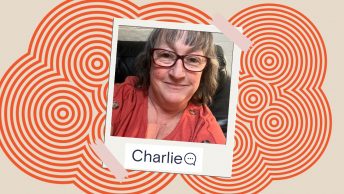Written by Dominic Giuliano
Dear reader,
You have decided you want to study psychology. You say you have a “deep interest” and “passion” to understand human behaviour, or you want to work in a field that helps people, or you simply want to understand yourself better. Welcome aboard.
Studying psychology is an incredibly rich, complex and fascinating field. It is also very challenging, and at times can become quite competitive.
This is an open letter to commencing or continuing psychology students with the aim of one day practicing as a psychologist.
You are unsure of what the road ahead looks like, and you are searching for some guidance as to how to make it through. Many of us have been where you are today.
I have several hopes for this message.
- The first is to provide some pointers for enhancing your learning.
- The second is to clarify the road ahead and the requirements for becoming a psychologist.
- The last is to provide you with some strategies to maximise your chances of success.
This insight comes from a fellow student recently admitted into a masters program. My advice is general in nature; some of it is “what worked for me”, and some of it is just best practice. You don’t have to do it all, but I’m hoping it can give you a benchmark.
Start before you start
If you have the luxury of taking time to prepare before you start your program, you should.
Psychology gets technical pretty quickly. You learn many new ideas and concepts, and if you’re a deep thinker, but a slow processor, you may wish to begin feeding your mind with useful information before starting.
This isn’t necessary, and you can certainly succeed without it. But pre-study preparation can give you a competitive advantage.
What am I referring to here? I am referring to the large volumes of books, podcasts and webpages that will stimulate your thinking, broaden your knowledge at your own pace, and help you find areas within psychology that are highly meaningful to you.
Here is my own personally curated list:
My Youtube podcast list includes (in no order):
- Paul Bloom – Yale University – Introduction to Psychology
- Robert Sapolsky – Stanford University Lecture Series – Human Behavioural Biology
- Jordan B Peterson – University of Torronto Lectures – Personality/Maps of Meaning
- Michael Sandel – Harvard University – Justice
- Matther Lieberman – UCLA – Social Psychology
My Reading List includes (in no order):
- Daniel Kahneman – Thinking, Fast and Slow; Noise
- Jonathan Haidt – The Righteous Mind
- Brene Brown – Brave
- Oliver Sacks – The Man Who Mistook his Wife for a Hat
- V.S. Ramachandran – Phantoms in the Brain
This is an expansive list, and by no means would you (or anyone) expect to consume all of it before starting. Instead, I recommend sampling these or other resources and see what you find interesting.
Building your own capacity before starting can accelerate your learning – concepts will come to you faster, and you will understand things more deeply. But not all of us can start before we start.
Doing more than is required
Who said studying requires sitting at a desk? Looking at the above list of items, you may find that many tie in with subjects you will be studying (e.g., Introductory psychology), and many audio programs can be consumed while doing other things.
You can listen to podcasts on the way to uni, or on walks with your dog, or while doing your washing up. Continuously revising ideas and concepts and hearing how the language is used can seriously enhance how easily you pick up subjects.
You may think, isn’t all this stuff extra? Why would I do that when I’m not being marked on it? Fair question.
Studying any program is like learning a new dialect. The more you expose yourself to the language, the sooner you can speak and understand that dialect.
Also, much of psychology is articulated, which means higher level subjects tend to have assumed knowledge. The more you work on foundational information, the better it will serve you as you progress.
Access free university resources
Get a bad mark in an essay? Charles Sturt offers free Academic Skills resources to help you sharpen your writing and ace future assignments.
You can submit drafts through Studiosity or book a 1-on-1 appointment with the friendly staff who can provide pointers on how enhance your grammar or referencing.
These skills are never a waste and will serve you well beyond your degree. Learning to be an effective communicator is one of the most attractive career skills and employers will always favour people who express themselves well.
Now that we’ve covered some tips, lets look at the landscape:
There are a few hurdles to becoming a registered psychologist. The Psychology Board of Australia (PsyBA) requires a minimum of six-year sequence in education and training; but how you can obtain those six years recently changed. Let’s have a look:
![[Graphic taken from the Australian Psychological Society.]](https://charlie.csu.edu.au/wp-content/uploads/2023/03/image-5-746x1024.png)
While registration once required the completion of a 4-year sequence (e.g., BPsychHons) and 2 years of supervised practice, now all psychologists must complete a minimum of a 5th year of an Australian Psychological Accreditation Council (APAC) accredited psychological sequence (i.e., Masters or PhD). So what are the stages?
APAC refers to them as levels. Level 1 is a 3-year sequence (i.e., a Bachelors degree) or equivalent (i.e., a Graduate Diploma). You can only access the Graduate Diploma if you’ve completed a bachelor’s degree in another field (as well as other pre-requisite subjects like introductory psychology).
Once you have completed level 1, you progress to level 2: the Honours year. This can involve any 4th year psychology program, whether it be an Honours, Postgraduate Diploma, or a 4th and 5th year combined Masters (see MPsychPrac at CSU).
Getting into 4th year is often determined by academic performance at level 1. Usually, admissions only look at 2nd and 3rd year performance. Check what the Grade Point Average (GPA) cut-offs are and aim to go above them if you can manage.
Level 3 is the tricky bit. Many psychology students want to get into Masters. Universities offer very few places for various reasons. Competition can be sharp.
By this stage, you will want to make sure that you can far exceed the minimum GPA/WAM cut-offs. Many people that meet the minimum entry criteria are not admitted into Masters programs, so you want to work to your strengths to give yourself an advantage.
Tips:
- The academic criteria (GPA/WAM) is generally most important in selection. You are less likely to progress to interview without competitive grades, so focus on this first.
- Get a tutor if you can, to help with your writing and to help consult on your thesis.
- Remember you must submit academic and professional references. As you get closer to level 3, start to ask people that can attest to your greatness. But again, the focus is academic performance.
- Apply for every Masters degree in Australia. Getting in is like winning the lotto: be in as many lotteries as possible. Give yourself the greatest chance of selection.
- Consider leaving applications until the year after you’ve submitted your thesis. Applications take time to submit and can distract you from your thesis which is the bulk of your 4th year grade.
- If you can, be ready to move anywhere a university will accept you.
So you made it to the interview. How do you prepare?
Having some relevant work experience can help, but it isn’t everything. I work in an office, for example. The important thing is how you express yourself in the interview, and link your previous experiences to the core strengths of a psychologist. If you can do that you can perform well in the interview.
Also, the interviews generally don’t tell you how to prepare. Some are long (ANU was 3 hours long); others are much shorter.
My recommendation is to spend some time reflectively writing so it is easier to answer these questions in the interview:
- Why should I be a psychologist?
- What about psychology could be challenging?
- What are my strengths and weaknesses?
Knowing your authentic answers to these questions can really help to demonstrate all that enthusiasm about working as a psychologist.
You may also be required to sit in a role play or engage in a writing task. Generally, you can’t prepare for these. Just trust that what you know is enough to carry you home.
You know how to write, and you know how to speak. Do what you do best and give it everything you have in the moment you have.
Lastly, a word of encouragement
It can feel like you don’t belong at university, surrounded by all these “geniuses”. Remember, effort trumps intelligence. But effort requires time.
If your course requires a minimum of 10 hours a week, see if you can double or triple it. A super smart person with only 10 hours is unlikely to perform as well as a reasonably intelligent person who’s worked 2 or 3 times as hard.
How you manage your time can determine how you go.
Well, that is a lot of information. But it hopefully provides you with more than what you need to succeed on your path to becoming a psychologist. It’s a challenging path.
But challenges force us to evolve and grow. If you are committed, and you have a battle plan, you can do it.
I wish you all the best, and hope to see you in the field someday.
Mindfully,
Dominic Giuliano.










